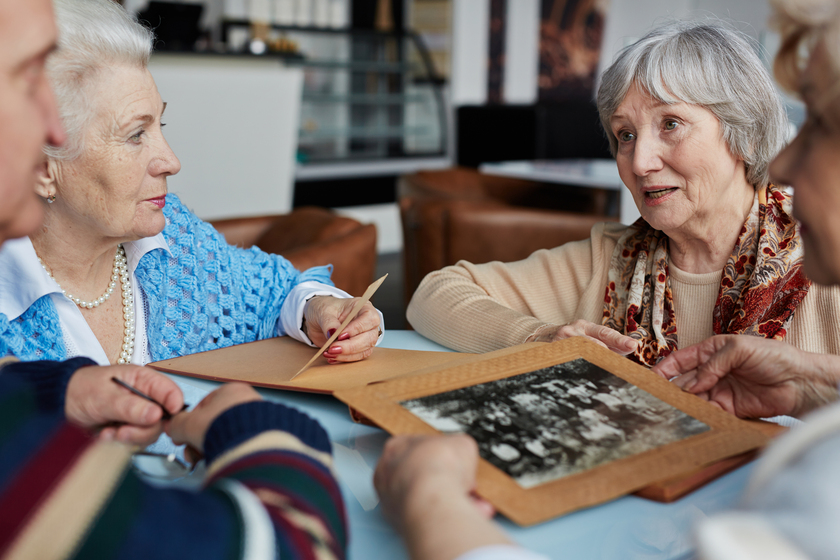Art has the potential to enhance the quality of life and well-being of individuals with dementia by providing a stimulating and enjoyable experience. It can help you maintain a sense of self and personal identity while alleviating symptoms such as memory loss, coordination difficulties and communication challenges. Studies have shown that creative art therapy can effectively address behavioral and emotional issues related to dementia, with various art forms offering different therapeutic benefits. When living in communities for memory care in Jacksonville Beach, FL, you will have the opportunity to participate in many types of stimulating activities that train your body and mind. In this article, we focus on drama and storytelling, uncovering how these art forms assist with communication and memory.
The Power of Stories
Neuroscientists have found that theater and storytelling can engage multiple senses and create a rich sensory experience for the brain. Stories often use language that is easy for our brains to visualize, and you are free to interpret a story based on your imagination and emotional response. Stories can also evoke strong emotions and influence our attitudes and beliefs.
Sharing stories and experiences through theater and storytelling can provide a valuable outlet for individuals with dementia to connect with others and express themselves in a supportive and engaging environment. Drama and storytelling activities help to create a more dementia-friendly community and provide opportunities for socialization and meaningful connections. Additionally, sharing stories can provide topics of conversation and help people relate to one another.
Benefits of Drama
Drama, when used together with movement and music, has a positive impact on the brain’s ability to develop neural reserves and compensate for damage caused by dementia. Drama is an engaging and social experience that promotes heightened awareness, observation and associative memory. Through creative imitation and embodiment, drama stimulates memory and encourages reminiscence, which can awaken memories and a sense of self in dementia patients. Improvisation in drama has also been proven to increase brain activity in areas linked to motivation and language while reducing stress and anxiety.
Benefits of Storytelling
Remembering past experiences and sharing stories can have positive effects on the health and well-being of individuals with neurodegenerative diseases. Storytelling stimulates the brain and engages it more than rational or practical messages, making it an effective way to communicate and encourage social interaction. Additionally, storytelling can help to create bonds, improve mood, promote self-esteem and aid relaxation. When engaging in storytelling activities, it is recommended to use nostalgic music or images to further spark memories and imagination.
The Objective of Activities in Memory Care Communities
In our Memory Care community, you will get plenty of opportunities to discover your interests and meet like-minded individuals, be it through art therapy sessions, fitness programs or themed dinner parties. No matter the medium, all our purpose-driven activities focus on promoting independence, confidence and self-esteem. These are achieved by celebrating small successes, focusing on strengths rather than limitations and conducting them in a non-competitive environment.







